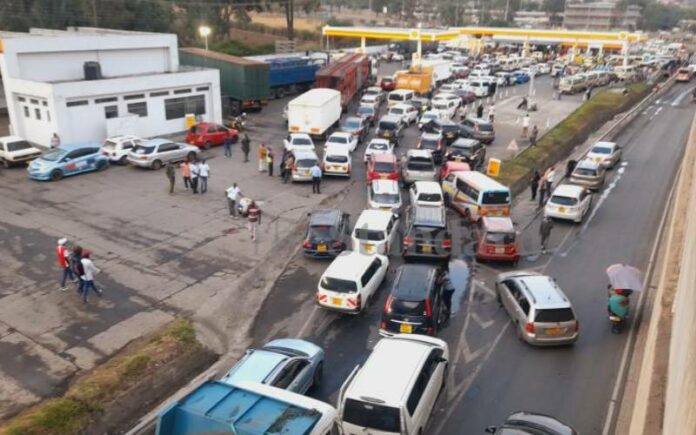Kenyan motorists are to blame for the biting shortage of fuel that is currently being experienced across the country.
This declaration of blame has been made by the permanent secretary in the ministry of energy Andrew Kamau. The PS said that Kenyans whose cars have never seen a full tank are panic-buying fuel leading to the crisis.
“Most people, their cars have never seen a full tank. Let’s just say that. All of a sudden, their cars are full, and they’ve even brought jerrycans to store extra. You’ve seen the pictures of motorists queueing for fuel,” he said.
“I call it financial runs. Something spooks people, and they head out to their bank to get all their money. So, what happens? You go there, and as the first person, you get all your money. When you are the 10,000th person, they say: ‘no, no, the bank is closed, we are not giving more money’. So, what happens?” he said.
“Another 100,000 people show up to try and get their money out of the ATM. That is what is called a run. That is exactly what is happening now [in regard to the fuel crisis.”
My good, bad, ugly experience flying in KQ Dreamliner to Dubai
Kamau’s statement came barely a day after President Uhuru Kenyatta blamed Russia for the ongoing crisis. According to economic analysts, though, the current crisis majorly the result of the government’s failure to pay oil marketers their dues.
The national government has failed in compensating margins to Oil Marketing Companies (OMCs) from the fuel stabilization mechanism.
In retaliation, marketers have resulted to hoarding fuel supplies in a bid to force payments from the exchequer.
Although the government alleges that it has only failed to pay oil marketers for one month, reports say that it owes oil marketers for up to four months, going back to December 2021.
Through the subsidy, the national treasury has been demanding that oil marketers sell their fuel at a loss. This loss is then supposed to be compensated by the government through the fuel subsidy.
However, the government has failed to pay up, leaving oil marketers exposed to selling their fuel at a loss without any forthcoming compensation.
According to KPC managing director Macharia Irungu, there are over 69 million litres of super petrol in its reserves.
Additionally, he said there are more than 94 million litres of diesel, 13 million litres of kerosene and over 23 million litres of jet fuel.









